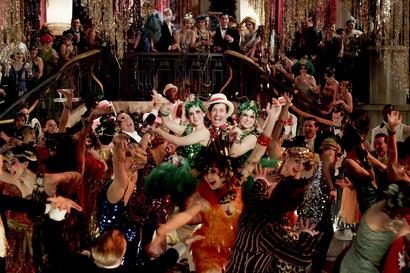

Five tips for public speaking success, from those who really ought to know
To many, the act of public speaking is a fate worse than death — literally. Here's how to conquer it.
Words: Joseph Bullmore
Start with a joke, they say. So here goes: “A recent survey ranked public speaking as most adult’s number one fear — which means that, at a funeral, the vast majority of us would rather be in the coffin than delivering the eulogy.” It’s not a classic, I know. But like all semi-good jokes, that one has the ring of truth to it. Public speaking is exposing and debilitating and adrenaline-squirting, in a way that death — oh lovely, soft death! — simply isn’t. It reduces alpha males to puddles. Lions to poodles. But it can be conquered — especially with some hard-earned and quickly-borrowed experience on your side. Here, five gentlemen who know all about this particularly tricky artform explain their singular, golden tips for success. Put the coffin down.
‘Tell stories, lose the ego, and move’ — Simon Bucknall, communication coach and World Championship of Public Speaking Finalist
Simon Bucknall was at a leaving do in 2001 when he was asked to give a quick speech to the gathered company. He messed it up quite spectacularly — but a horror story that would have haunted the rest of us for decades simply spurred Bucknall on to improve, and to learn more about the very specific art of public speaking. Nowadays, he’s one of the country’s foremost coaches in communication and executive speaking — a trusted guide to FTSE 100 execs, politicians and nervous best men alike.
“First tip: make a point, tell a story. We tell stories all the time. We’re hard-wired to find them natural and easy as a way to communicate. Stories bring ideas to life and because they’re more memorable than an explanation, they help with getting your point across. The 2007 World Champion of Public Speaking, Vikas Jinghran, in his winning speech, told a story from his childhood in Kolkata. To this day, I remember that story — and, as a result, his message.
Second tip: public speaking is about the audience, not the speaker. Again, sounds obvious but the implications are profound. Your audience cares about what’s in it for them, not you. Focus on what you want to achieve for them. What’s the outcome? What change do you want to trigger?
This will help with any nerves, too. By focusing on your audience, it’ll shift your attention away from those symptoms of adrenaline – the racing pulse, butterflies, shaky voice. Too many speakers allow themselves to be distracted by the nerves. As a result, they end up more focused on themselves than on their listeners. Avoid that trap!
Let’s treat nerves for what they really are: symptoms of adrenaline. Be kind to yourself. You’re allowed to experience those symptoms. Just as you might do during a big sports match or a hot date. Remember to breathe. Adopt a comfortable ‘neutral’ position – stand tall, decide what to do with your hands. If you have the space, movement will help.”
‘Use bullet points’ — Archie Manners, magician and compere
Magicians are perhaps the most considered public speakers in the world — their entire act is a finely honed selection of phrases and words that hope to beguile, distract, misdirect and discombobulate the listener. At the same time, though, they have to be natural and human — and Archie Manners (who is a frequent society compere and a sometimes charity auctioneer, to boot) knows this fine balance better than most.
“The best tip I can give is to make your notes bullet points. Having an entire script makes you look like a toddler playing “Tree 3” in the school nativity, whilst bullet points allow you to speak around the subject like a normal human and forces you to look up and make eye contact with your audience. Secondly, speak to the back of the room; it makes you look relaxed, you look up to the audience and forces you to enunciate clearly and slowly. Finally, make it funny. I can’t really help with that.”
‘Less is more’ — Rupert Wesson, Director at Debrett’s
Debrett’s has long been the chief arbiter of manners, social etiquette and The Done Thing. But these days their work is as much about achieving success in business and in life as it is about the hierarchy of finger sandwiches. As a Director at the esteemed publisher and academy, Rupert Wesson has coached a huge number of leaders around the world on how they can communicate better in public — with greater ease, wit, poise and clarity.
“If there is one thing that I share with all of my coaching clients it is “pause more, say less”. A good speaker will pause to think before they speak — and of course the listener needs time to think about what has been said. After all, if neither speaker nor the listener is thinking about what is being said, then what is the point in speaking at all? When my clients want to have more impact I always advocate using fewer words than before but to choose them with more care.”
‘Don’t overthink it’ — Josh Berry, comedian and writer
Professional comedians are the undisputed maestros of public speaking: trained experts in tone, clarity, timing, engagement, and that most important of assets — brevity. Josh Berry, the brilliant writer and comedian, believes it’s all about staying relaxed — and making yourself the butt of the joke, if possible.
“Try not to think too much about what it is you’re doing. It’s rather like driving — if you’re thinking too much about driving, you’ll only drive worse. Try to talk as if you’re telling a story to a group of friends in a pub (or at a wine mixer, if this is for the Gentleman’s Journal’s readership). Rather than feeling nervous and thinking about worst case scenarios, try instead to actively do things to make the speech better. Look at your audience and see if you can drop in a few jokes or points that will really relate to them and capture their attention more effectively. Humour is always good. And if you can, try to be self-effacing and make yourself the butt of your jokes, it’ll make the room you’re speaking to like you — which is very important.”
"It's a stroll, not a sprint" — Professor Stefan Allesch-Taylor CBE
Professor Stefan Allesch-Taylor is the Professor of Practice of Entrepreneurship at King’s College London, and a serial entrepreneur in his own right. As both a founder and an investor, he has been on both ends of a pitch — and what is public speaking, if not a friendly, conversational pitch? Here, the gregarious, seasoned spokesman for the field of entrepreneurship explains why there’s no need to rush — and how your face might well be your greatest asset.
“There’s no question that those best at public speaking make it look like it requires no skill at all. After all, we are all capable of a conversation. In truth there are, of course, skills. The first is to ensure that you have a beginning, a middle and above all an end to whatever you are speaking about — don’t simply taper off. The second is to use your face — yes, your face. Any conversation delivered with zero animation is stilted and would come across as weird in a normal context — and the same goes for great public speaking. Lean into your words and sentiment the way you would in conversation. Thirdly, and finally, and indeed the best advice of all: know your subject. Really know it — be guided not by a written narrative but by bullet points to remind you of flow. Lastly — take your time. A good speech is a stroll, not a sprint.”
Read next: How to divorce like a gentleman (according to one of London’s foremost divorce barristers)


